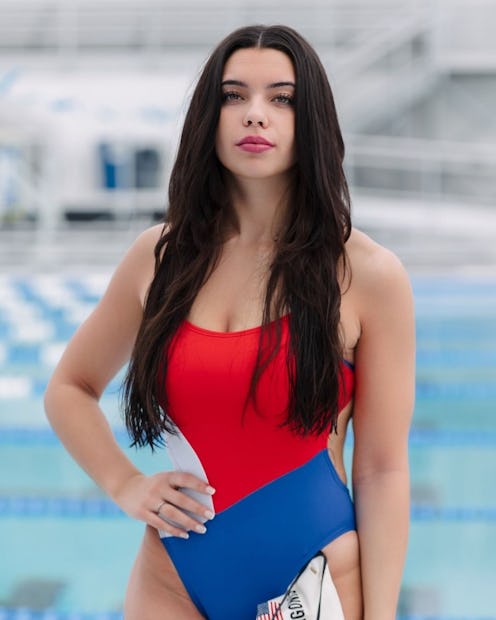(Step By Step)
Anastasia Pagonis On How To Stay On Top Of Your Game
Pep talks are key.

Sometimes it’s the smallest changes that can make a big impact. This rings especially true when it comes to one’s health. In TZR’s series Step-By-Step, tastemakers speak to the minor moves that can lead to mighty changes.
Anastasia Pagonis is her own hype woman. Within the first few minutes of a recent Zoom call at the tail end of her time at the Paris Paralympics (where she had just finished fourth in the 400m Freestyle S11), the pro swimming champion had already delivered a live demonstration of mental fitness and the power of a pep talk. “I was 100% not prepped for these [games] but I'm here and I'm getting through it,” says Pagonis to TZR, referring to Paralympics training and prep after shoulder surgery in 2023. “I mean, I came into these games with a lot of pressure. I am the world champion, world record holder, and I got fourth, and that's still freaking amazing. And a gold medal doesn't identify who I am in any way. I'm still Anastasia and I'm still the same amazing person.”
To be clear, Pagonis, who started losing her vision at 12 years old due to genetic retina disease and autoimmune retinopathy, already has a couple Paralympic medals under her belt, one gold and one bronze from the 2020 Tokyo games. Also, her presence in Paris is part of a greater mission that goes beyond obvious athletic victories. “I just want to show people with disabilities that it's not about winning, it's not about world records, it's not about gold medals,” she says. “It's about putting in the work in every day and loving what you're doing.”
Indeed, when it comes to maintaining your mental health, it’s often a combination of little habits that create a solid foundation. Pagonis proves this as she claims that, in addition to positive self-talk, her magic formula also includes regular rest (she loves a nap) and mindfulness exercises in moments of stress and anxiety — like before a race. “When I'm in the call room, I'll do different breathing techniques and I'll do this one thing to feel grounded: five things that you could touch right now and five things you can hear and five things you can smell. It just make you feel in the moment.”
Therapy, in many forms, has also been a key component to her day-to-day. Pagonis’ guide dog Radar — who is a frequent star of the swimmer’s IG posts — has been a game-changer in allowing the athlete access to more freedom. “I never really had independence before him,” said the Paralympian to NBC in a promotional video for the games. “I had to rely on someone taking me around or holding my mommy’s hand. Which, for a 17 year old, isn’t the best thing. So, Radar really brought back my independence. I can wake up in the morning and go get coffee and bagels by myself with him.”
There’s also actual therapy, for which which Pagonis is a big advocate. In fact, the swimmer’s therapist was in Paris throughout the Paralympics. “She's just my favorite person in the whole world, so she and her husband came to support me,” says the athlete. “I needed a lot more support than I thought I was going to need, so it's really nice to have her here.”
Also, never underestimate the power of a solid beauty hack for a quick shot of self-confidence. Pagonis says makeup and skin care as well as a good old “shaving party” (she’s a spokesperson for Gillette’s Venus razor brand) help her feel more confident and beautiful, especially when she’s about to race or going out. “Being able to feel powerful and confident is so important,” she says, noting her love for smooth shave. “That's what makes me feel beautiful and I know I'll be able to swim fast like that.”